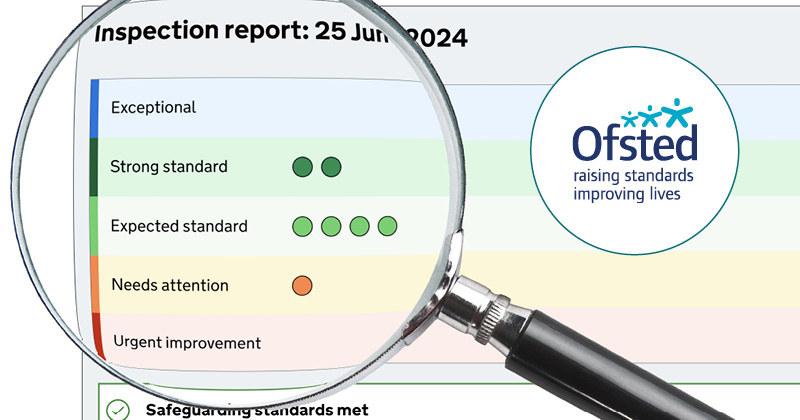Ofsted’s report cards signal an end to the blunt, reductive judgments that cause so much unnecessary stress for teachers and leaders. They move us towards a richer, more nuanced account of school performance, but this is only a partial fix.
The reforms are a welcome step towards giving parents better insights and driving targeted improvement, but the proposed schedule of inspections still leaves parents waiting years for feedback and limits schools’ access to the real-time support they need to improve, without removing the stressful high stakes.
Ofsted’s real value has never and should never have been in giving schools stickers. At its best, inspection highlights what works, surfaces concerns and gives school leaders a clear path forward. Like a good classroom assessment, it should provide not a snapshot but a step in a journey.
The report card recognises that feedback can’t be captured in a single word. But it still doesn’t stretch to the full potential of what we can deliver in 2025.
Receiving external feedback every four years is better than nothing, but it’s hardly transformative. Schools need focused, timely insights that allow them to test interventions, see quickly what is working to scale it up and spot emerging problems before they’re entrenched.
A static inspection regime cannot tell leaders whether a new literacy approach is helping disadvantaged pupils catch up or whether attendance support measures are keeping vulnerable children in class. It cannot show where one strategy works for 99 per cent of pupils but leaves one per cent behind.
Today’s technology can.
We know real-time feedback is possible because the Department for Education has already done it. Its national attendance dashboard gives daily visibility into who is in school. It’s a brilliant example of how joining up data collected by individual schools can drive improvement everywhere.
Ofsted’s real value is not in giving schools stickers
Since its introduction, attendance and persistent absence figures have improved nationwide and new insights about the importance of first-week attendance have been unlocked.
We could see a similar impact across a wide range of other concerns, from learning outcomes to behaviour issues to SEND support.
What’s missing is the architecture to connect the dots. With the right system, we could build a cross-school, real-time performance monitoring network, not focused on judgments but on providing the information teachers, leaders and parents need and the timely support that turns things around.
A digital learner ID for every pupil would unlock this. The ID would contain a pupil’s full educational information from test results and homework to attendance and non-academic achievements.
This needs to go beyond welcome-but small-scale pilots with NHS numbers to link up safeguarding. A bigger prize is on offer.
Crucially, it would give pupils and parents ownership of their data. Families could receive insights such as study recommendations, advice on employment pathways or help selecting schools.
To build trust in this system, the government should also establish an independent body to oversee secure storage and appropriate use of learner data. With this safeguard in place, anonymised, aggregated information could be shared with educators to analyse trends, spot shifts in attainment or wellbeing and provide reliable evidence to evolve the assessment system itself.
Over time, this would build the backbone of a national education data infrastructure that supports schools, empowers parents and improves outcomes.
Ofsted has played an essential role for a quarter of a century. But it must modernise. Rather than relying on lightning inspections, it should use data schools already collect to assess performance, monitor progress and trigger interventions.
RISE teams offer an excellent channel to deliver this but they need the data to guide their work. A common digital learner ID embedded in a national system of real-time monitoring would help build a genuine partnership in school improvement.
If we want accountability to regain the confidence of schools and parents, we need to make it meaningful in the here and now. That means moving from static report cards to living systems of feedback.
The prize is an inspection system that helps every school improve, every pupil achieve more and every parent understand, in real time, how their child’s education is being supported.













Can I suggest the author actually gets a job working in a school for a year. Then returns to this article, a wiser man, and deletes it.